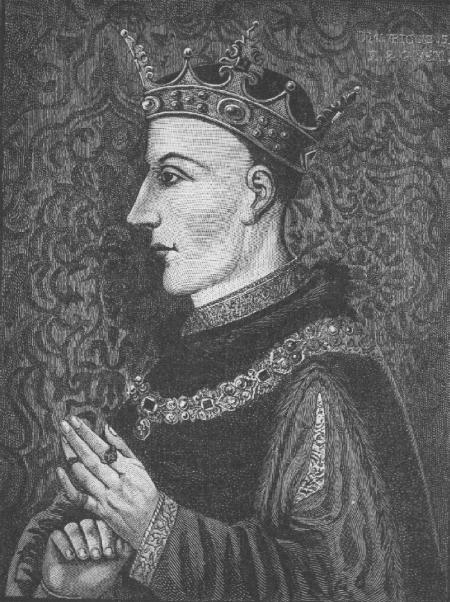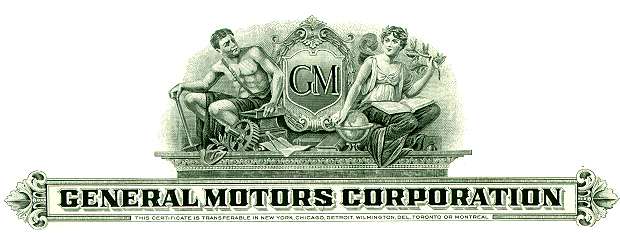NAVIGATION COLUMN
Home Page
Yahoo Groups:
History 1 Day 2
Nuremburg Data
Daily History Pages:
In Calendar Form
FAIR USE NOTICE: This site could contain copyrighted material the use of which has not always been specifically authorized by the copyright owner. We are making such material available in our efforts to advance understanding of historical, political, human rights, economic, democracy, scientific, environmental, and social justice issues, etc. We believe this constitutes a 'fair use' of any such copyrighted material as provided for in section 107 of the US Copyright Law. In accordance with Title 17 U.S.C. Section 107, the material on this site is distributed without profit to those who have expressed a prior interest in receiving the included information for research that could include educational purposes. If you wish to use copyrighted material from this site for purposes of your own that go beyond 'fair use', you could most likely need to obtain permission from the copyright owner.
|
September 16

1387 Birth: Henry V, king of England (1413-22).

1485 Beefeaters: The bodyguard of the English Crown, the Yeoman of the Guard, is established this day by King Henry VII. Today their main duties are being photographed dozens of times a day posing with tourists.

1498 Death: Tomas de Torquemada, inquisitor who burned at least 10,000 people. "At his birth (1420, Torquemada, Castile, Spain) Tomás already had something to hide (Note: He should have hidden that haircut.): his grandmother was a converso; a converted Jew; a New Christian. Spain had more converted Jews than any other country; some had converted by choice, many more by force, but they were all regarded with suspicion and mistrust by the Old Christians. Some, called Marranos, were only nominally converted, and continued their Jewish customs in secret. The result was the Spanish cult of sangre limpia, "pure blood," that is, pure white Christian blood. Actually, since Spain had the largest Jewish population in medieval Europe and conversion and intermarriage were common, hardly anyone had sangre limpia, but many claimed to, and it was a constant preoccupation of the nobility. Torquemada's life work was an attempt to achieve sangre limpia for Spain.

By 1479, when Spain was unified under Ferdinand and Isabella, Torquemada was a Dominican priest and Isabella's confessor. Four years later he had established himself as the head of the Spanish Inquisition. The purpose of the Inquisition was to root out heresy, and for Torquemada this meant destroying the Marranos. The Inquisition published a set of guidelines so that Catholics could inform on their Marrano neighbors: "If you see that your neighbors are wearing clean and fancy clothes on Saturdays, they are Jews. If they clean their houses on Fridays and light candles earlier than usual on that night, they are Jews. If they eat unleavened bread and begin their meal with celery and lettuce during Holy Week, they are Jews. If they say prayers facing a wall, bowing back and forth, they are Jews." The mildest penalty imposed on Marranos began with the..."

1747 The French capture Bergen-op-Zoom, consolidating their occupation of Austrian Flanders in the Netherlands.

1782 The Great Seal of the United States is impressed on document to negotiate a prisoner of war agreement with the British; the first official use of the impression.
1794 The Mayor of Doncaster, England, stages a public burning of gaming tables. The good mayor is not motivated by religious zeal or community improvement, it's just that he would rather that the people concentrate on the racecourse instead.
1795 The British capture Capetown.

1810 Mexican Revolution: A revolution for independence breaks out in Mexico as Hidalgo begins the Mexican revolt against Spain. Now a National Day.

1812 Napoleon enters Moscow. Although the army has strict orders against pillage, the men cannot be controlled and they force themselves into the palaces and rich houses. Some time after Napoleon's arrival in Moscow some fires start to show up in various locations in the city. At first these are thought to be accidents but when the fires start swallowing large parts of the city, it is obvious that the Russian army is setting fire to the city spite the French. The fires spread to such an extent that Napoleon barely escapes the torched city. The fire lasts from 15 to 18 September. Four-fifths of the city burn down but the rest is saved by a sudden change of direction of wind and a following shower. The Kremlin is saved since its position above the city allows the guards remaining to extinguish the threatening fires nearby. Napoleon will leave Moscow on 19 October 1812 with 87,500 infantry, 14,750 cavalry and 533 guns with a trail of some 40,000 carriages and wagons.

1823 Birth: Francis Parkman, American historian, author (Oregon Trail).

1838 Birth: James Jerome Hill [J.J.], in Canada, railroad builder and entrepreneur (Great Northern Railroad).
1848 Slavery is abolished in all French territories.
1857 The typesetting machine is patented.
1857 Jingle Bells / Jingle Bells / the Christmas song you've heard / is written by / Jane Pierpoint / and this day registered.
1862 US Civil War: General Bragg's army surrounds 4000 federals at Munfordville, Kentucky.
1864 US Civil War: Confederate General Nathan Bedford Forrest leads 4,500 men out of Verona, Mississippi to harass Union outposts in northern Alabama and Tennessee.

1877 Birth: James J. Jeans, cosmologist, astrophysicist (Mysterious Universe).

1885 Birth: Karen Horney, psychoanalyst who will apparently be credited with 'exposing the male bias in the Freudian analysis of women.'

1888 Birth: Walter Owen Bentley, British car designer.
1889 Death: Robert Younger, while serving a life sentence in Minnesota's Stillwater Penitentiary, of tuberculosis.

1891 Birth: Karl Doenitz, Grand Admiral and Commander in Chief of the German Navy after January 1943, last leader of Nazi Germany. Doenitz will serve in U-boats during WW1 and remain in the German Navy, although the Versailles Treaty had stripped Germany of all its submarines. When Germany begins to rearm, Doenitz is chosen to organize the new submarine service, and will become Chief of U-boat Forces. When war breaks out, in 1939, he is promoted to Rear Admiral, but has far fewer submarines than are required by the war plans (which did not anticipate a war before 1942). In spite of this, his U-boats are highly successful, scoring one coup after another, while the warships of the German surface navy, like the Bismark or Graf Spee, seem to make headlines only by being hunted down and sunk. Hitler is highly impressed with Doenitz' character and ability, and in his last political testament, names Doenitz to succeed him as Fuehrer, though he will hold the position for only eight days. After the surrender, Doenitz is tried for war crimes at Nuremburg, but is able to convince the tribunal that he had been kept ignorant of the murder of millions in the death camps of "the final solution." He is sentenced to ten years imprisonment for "Planning Aggressive War." Note: Doenitz will say that there had been an organized program of deception designed to convince anyone who could not simply be silenced that the concentration camps were just big prisons and any rumors one heard about mass murder were only "Allied lies." Doenitz'will claim to have been taken in by this operation.

1893 Oklahoma Land Rush: The Cherokee Strip in Oklahoma is swarmed by 50,000 'Sooners' looking for land.

1893 Birth: Albert Szent-Gyorgyi, in Hungary, biochemist who will isolate vitamin C. (Nobel 1937).

1908 William Crapo Durant files papers of incorporation for the General Motors Corporation in Janesville, Wisconsin, merging Buick and Oldsmobile.
1908 August Kubizek, Hitler's roommate and closest friend, is called up for military service, leaving Hitler alone in the Stumergrasse. (Maser)
1915 The US takes control of customs and finances of Haiti for 10 years.
1918 WW1: US General Pershing's assault on the Saint-Mihiel salient, the first US Army operation of the war, is completely successful, and the salient is entirely cleared.
1919 WW1: The American Legion is incorporated by an act of US Congress.
1919 Hitler's first known political writing; on the 'Jewish Question,' of course. A letter addressed to Adolf Gemlich (identity unknown) shows that Hitler's belief in a worldwide Jewish-Marxist conspiracy is already well developed.
1920 Thirty people are killed in a terrorist bombing in New York's Wall Street financial district.

1930 Hitler gives an election speech in Munich. "Do not write on your banners the word 'Victory.' Today that word shall be uttered for the last time. Strike through the word 'Victory' and write once more in its place the word which suits us better: The word FIGHT!!!..."
1935 Church and Reich: The central office of the German episcopate in Berlin reports that previously Catholic couples of racially mixed descent had traveled to England to get married, but now even those marriages have become illegal. (Lewy)
1936 Press Reaction to Hitler's September 14 Speech: The Fuehrer's closing speech at the National Socialist Congress was another manifestation of the prevailing mood at Nuremberg: against bolshevism.--Le Temps

1938 Sudeten Crisis: British Lord Runciman (left) recommends that Czechoslovakia relinquish all border territories with a majority of ethnic Germans to Germany.
1939 Diary of Leon Gladun: (Fighting in southeastern Poland, north of Lwow.) Our guns are shelled--1 killed, 2 wounded. I drove Michalewicz to the hospital. I return to our barracks. Ours boys are firing--things are still good. As long as there's no tanks nearby. The city is dead, nobody there--they're all hiding somewhere in the forest or the villages. The night is fairly quiet--just rare artillery shots. As of yesterday: 9 dead and several wounded.

1940 Samuel T. Rayburn of Texas is elected Speaker of US House of Representatives, and it will stay that way for 17 years.
1941 WW2: Reza Shah Pahlavi, the pro-German ruler of Iran, is forced to abdicate in favor of his son by the British. Shah Pahlavi is sent out of the country.
1941 WW2: US Secretary of the Interior Harold Ickes has lunch with Bernard Baruch and asks him why Edward Stettinius, who he says has been a failure at every job he has held so far, has been moved up by the President to the important position of Administrator of the Lend Lease Act. Baruch tells him that he believes it is a ploy to protect Harry Hopkins. Baruch says he believes that Hopkins is now, in effect, Assistant President, but that his standing on the (Capitol) Hill is such that he needs someone to front for him. "So Stettinius has been given that title, but he can be depended upon to do whatever Harry (Hopkins) tells him to do. (Ickes)

1942 WW2: The Japanese base at Kiska in the Aleutian Islands is raided by American bombers.
1942 WW2: The German army enters the outskirts of Stalingrad. Fighting soon becomes street-to-street, block-to-block, house-to-house combat.
1942 Holocaust: Forty Bulgarian-born Jews are among those deported to Auschwitz from Paris. No Jews in Bulgaria had yet been deported to Auschwitz. (Atlas)

1942 Volkishness: Heinrich Himmler in a speech at Hegewald says that the blood that coursed through the veins of Genghis Khan, Attila the Hun, and Stalin is German. (Architect)
1943 WW2: General Clark's forces join up with the British 8th Army advancing northward from southern Italy.
1943 Holocaust: More than 37,000 Italian Jews come under Nazi rule. Some escape to Switzerland. Several thousand find refuge in Catholic homes. (Atlas)
1944 WW2: Hitler shuffles his cards and decides on a counteroffensive in the West. The Eastern Front is far too vast, Hitler says, and the Russians much too superior in number for such an operation to succeed. Chances are much better in the West.
1950 Korea: The US 8th Army breaks out of the Pusan Perimeter in South Korea and begins heading north to meet MacArthur's troops heading south from Inchon.
1968 Richard Nixon appears on the inane TV show Laugh-in, in a clumsy attempt to improve his less than loose image.
1971 Six Klu Klux Klan members are arrested in connection with the bombing of 10 school buses.
1972 South Vietnamese troops recapture Quang Tri province in South Vietnam from the North Vietnamese Army.
1974 US President Jerry Ford announces a conditional, limited amnesty to Vietnam-era draft resisters who will now swear allegiance to the United States and perform two years of public service.
1982 Christian militiamen enter two Palestinian refugee camps at Chatila and Sabra, in West Beirut, Lebanon, and begin shooting. By the time the massacre is over two days later, hundreds of people are dead. Survivors claim Israeli forces sealed off the boundaries of the camps, allowing the militiamen to enter.
1985 The Communist Party in China announces changes in leadership that are designed to bring younger officials into power.
1987 The Montreal Protocol is signed by 24 countries in an effort to save the Earth's ozone layer by reducing emissions of harmful chemicals by the year 2000.
1990 An eight-minute videotape of an address by US President Bush is shown on Iraqi television. The message warns that action of Saddam Hussein could plunge them into a war "against the world."
1991 The Philippine Senate rejects a US lease on the Subic Bay Naval Station.
1991 Iran-Contra: A federal judge in Washington dismisses the Iran-Contra charges against Oliver North.
1994 A federal court jury in Anchorage, Alaska, orders Exxon to pay $5 billion dollars to the fishermen and natives whose lives are affected by the Exxon Valdez oil spill in 1989. It is the second largest assessment for punitive damages ever directed at one company, and the largest ever in a pollution case.
1997 Authorities in Kelantan, Malaysia, announce that cinema lights will be left on to discourage smooching.
1999 US Congress gives a pay raise to future US presidents, from $200,000 a year to $400,000. The increase is to take effect in 2001.

2001 Israeli tanks and troops enter the Palestinian city of Ramallah for a few hours, killing a Palestinian, as truce talks are called off.

2001 President Bush pledges "crusade" to "rid the world of evil-doers," brushes off reported Osama bin Laden denial.

2001 US Vice President Dick Cheney warns that those who harbor terrorists face "the full wrath of the United States."
2001 Pakistani official says senior delegation sent to Afghanistan to deliver US message: hand over Osama bin Laden or risk massive assault.
2001 The British government rapidly begins rounding up possible terrorist suspects across the country.
2002 Iraq says it will allow weapons inspectors back into the country 'without conditions', but the US and others are disinclined to listen.
2004

2004

2004

2004

^ Top of Page ^
Click Here to email the Webmaster of this site.
Web Page Design by Nathan
This page was last updated on September 12, 2005
|
